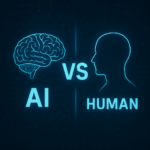Cybersecurity is no longer just about firewalls and antivirus software. As cyber threats become more advanced, organizations are turning to Artificial Intelligence (AI) to strengthen their defenses. AI is transforming how security professionals detect, prevent, and respond to cyberattacks — and it’s quickly becoming a core part of modern cybersecurity strategies.
In this article, discover how AI in cybersecurity works, why it’s needed, and what makes it such a powerful tool in today’s evolving threat landscape.
What Is AI in Cybersecurity?
AI in cybersecurity refers to the use of machine learning algorithms, data analytics, and automation to identify and respond to cyber threats. Unlike traditional tools that rely on manual rules, AI can learn from data, recognize patterns, and make decisions with minimal human intervention.
Key Capabilities:
- Detecting anomalies in user or system behavior
- Analyzing large volumes of security data in real time
- Automating incident response and threat mitigation
- Enhancing overall visibility into an organization’s security posture
Why Traditional Cybersecurity Isn’t Enough
Traditional cybersecurity solutions depend on known signatures and predefined rules. While effective for known threats, they struggle to detect:
- Zero-day attacks
- Polymorphic malware
- Advanced persistent threats (APTs)
Today’s attackers are faster, smarter, and more adaptive. AI addresses these gaps by learning from both known and unknown data, helping organizations stay ahead of evolving threats.
How AI Detects Cyber Threats
AI systems monitor networks, endpoints, and user behavior to detect suspicious activity. They use techniques such as:
- Anomaly Detection – Identifies unusual patterns, like login attempts from unexpected locations.
- Predictive Analytics – Anticipates threats based on trends and historical data.
- Behavioral Analysis – Tracks user behavior to flag potential insider threats.
AI systems can analyze billions of data points in seconds, making them ideal for large-scale environments.
Real-World Impact of AI in Cyber Defense
Organizations using AI in their cybersecurity strategy benefit from:
- Faster detection and response to threats
- Reduced false positives, saving time for analysts
- Stronger endpoint protection
- Improved compliance with data security regulations
From banks and healthcare systems to e-commerce platforms and governments, AI is helping defend against everything from ransomware to phishing attacks.
Quick Example: AI in Action: Imagine a financial institution using AI to monitor transaction patterns. If a user suddenly initiates a large wire transfer from an unfamiliar IP address at 3 a.m., the system instantly flags it, blocks the transaction, and alerts the security team — all in real time.
The Growing Importance of AI in Cybersecurity: With the rise of remote work, cloud computing, and IoT devices, the attack surface has expanded dramatically. AI helps secure these distributed environments by providing intelligent, scalable, and adaptive defense mechanisms.
Overall, AI is not a replacement for human cybersecurity experts — it’s an amplifier. By automating threat detection and response, AI allows professionals to focus on complex decision-making and strategic planning.
As cyber threats continue to evolve, so must our defenses. Embracing AI-powered cybersecurity is no longer optional — it’s essential.





Leave a Reply